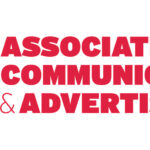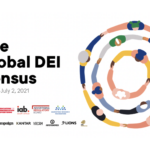 by Hellocomputer’s Cape Town Managing Director, Robyn Campbell.
by Hellocomputer’s Cape Town Managing Director, Robyn Campbell.
Just this week Google made headlines when an internal memo distributed by one of its engineers went public.
His opinion on gender equality included this landmine: “Distribution of preferences and abilities of men and women differ in part due to biological causes and that these differences may explain why we don’t see equal representation of women in tech and leadership.”
Thankfully, he was promptly dismissed for “perpetuating gender stereotypes,” and violating Google’s Code of Conduct, but the incident highlights a bigger gender discrimination problem.
You can’t spend five minutes online without coming across a piece about sexual harassment or gender discrimination in the digital marketing or technology landscape. Between Uber, Kevin Richards from Saatchi & Saatchi and even Elon Musk’s Tesla, the stories are real and they are alarming.
The advertising landscape in South Africa has only just started to make headway on transformation, with some agencies leading the charge in making significant change to the industry and country.
But, with our day-to-day focus on achieving genuine transformation, the industry – digital advertising in particular – must remind itself to keep an eye on gender disparity.
Consider the following.
This year only 23% of the Bookmark judges were women. There are an alarmingly small number of female managing directors, and even fewer executive creative directors or creative directors. Why, on LinkedIn, you will be lucky to find one woman listed on the first page when searching for digital creative directors.
Now consider the repercussions of the digital industry’s gender inequality on the relevance and effectiveness of the work it does for its clients.
Women provide unique insights and valuable perspectives that are indispensable when it comes to creating truly inclusive work. Collaboration is nothing without diverse viewpoints, and collaboration is a key component in the rise of digital.
But, if there are no women … Our industry has a problem and we all, men and women, need to embrace the ideals of feminism to change the status quo.
Step one would be understanding that equality isn’t just achieved by providing exactly the same to male and female staff, it’s about tailoring our working environments to be personalised to individual needs, providing the foundation for women to be successful.
It’s the opportunity to have a child without it affecting your career, the opportunity to be considered stoic instead of icy, the opportunity to be respected and heard at the boardroom table without being considered ‘bossy’.
We need to strive to be more conscious, we need to use our position in the industry to make a difference, to empower our women and girls.
We need to address how we can affect change from ground zero. How are we hiring, how are we training, how are we identifying bias, are we paying fairly, what are we doing to move away from the established stereotypes?
And then, of course, the power we have working in advertising is to change perceptions with our work.
As Marc Pritchard from P&G said about that brand’s #SeeHer campaign: “With advertising, we can make gender equality normal. It’s all about your cognitive processing. We’re focused on a mission to make sure advertising accurately reflects women and girls.”
It was gratifying to see gender equality being put firmly centre stage at last year’s Loerie Awards.
Incoming chairperson Suhana Gordhan (Creative Director, FCB Joburg) spoke about the huge challenges she had to overcome to succeed in her industry, as well as those she still faces daily.
I am hopeful she can keep the conversation alive and position the Loerie Awards to be a positive change agent in our industry.
And, I challenge you to consider what you are doing to make a change, at its simplest, to make this an industry you would want your daughters to work in.
As inspiration, I leave you with two quotes. Prince Harry said: “We know that when women are empowered, they immeasurably improve the lives of everyone around them – their families, their communities and their country.”
Actress and activist, Emma Watson, said it differently: “If you stand for equality, then you’re a feminist. Sorry to tell you.”
- Automation and AI: Super-Tools to level up your business - 24th July 2024
- Salesforce Launches First Autonomous AI Agent - 19th July 2024
- WPP champions inclusive creativity at inaugural Unite South Africa Awards during Pride Month - 19th July 2024





